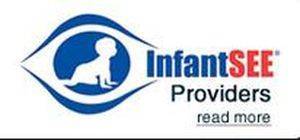As we reach middle age, particularly after age 40, it is common to start to experience difficulty with reading and performing other tasks that require near vision. This is because with age, the lens of our eye becomes increasingly inflexible, making it harder to focus on close objects. This condition is called presbyopia and eventually it happens to everyone who reaches old age to some extent.
To avoid eyestrain, people with untreated presbyopia tend to hold books, magazines, newspapers, and menus at arm’s length in order to focus properly. Trying to performing tasks at close range can sometimes cause headaches, eye strain or fatigue in individuals who have developed this condition.
Causes of Presbyopia
During our youth, the lens of our eye and the muscles that control it are flexible and soft, allowing us to focus on close objects and shift focus from close to distant objects without difficulty. As the eye ages however, both the lens and the muscle fibers begin to harden, making near vision a greater challenge.
Presbyopia is a natural result of the aging process and not much can be done to prevent it. Its onset has nothing to do with whether you already have another vision impairment such as nearsightedness, farsightedness or astigmatism. Everyone will notice some degree of loss of near vision focusing power as they age, although for some it will be more significant than others.
Symptoms and Signs of Presbyopia
Presbyopia is characterized by:
- Difficulty focusing on the small print
- Blurred near vision
- Experiencing eyestrain, fatigue or headaches when doing close work or reading
- Needing to hold reading material or small objects at a distance to focus properly
- Requiring brighter lighting when focusing on near objects
Presbyopia can be diagnosed in a comprehensive eye exam.
Treatment for Presbyopia
There are a number of options available for treating presbyopia including corrective eyewear, contact lenses or surgery.
Eyeglasses
Reading glasses or “readers” are basically magnifying glasses that are worn when reading or doing close work that allow you focus on close objects.
Eyeglasses with bifocal or multifocal lenses such as progressive addition lenses or PALs are a common solution for those with presbyopia that also have refractive error (nearsightedness, farsightedness or astigmatism). Bifocals have lenses with two lens prescriptions; one area (usually the upper portion) for distance vision and the second area for near vision. Progressive addition lenses or PALs similarly provide lens power for both near and distance vision but rather than being divided into two hemispheres, they are made with a gradual transition of lens powers for viewing at different distances. Many individuals prefer PALs because unlike bifocals, they do not have a visible division line on the lens.
Bifocal and Multifocal Contact Lenses
For individuals that prefer contact lenses to glasses, bifocal and multifocal lenses are also available in contact lenses in both soft and Rigid Gas Permeable (RGP) varieties.
Multifocal contact lenses give you added freedom over glasses and they allow you to be able to view any direction – up, down and to the sides – with similar vision. People wearing progressive lenses in glasses, on the other hand, have to look over their glasses if they want to view upwards or into the distance.
Another option for those that prefer contact lenses is monovision. Monovision splits your distance and near vision between your eyes, using your dominant eye for distance vision and your non-dominant eye for near vision. Typically you will use single vision lenses in each eye however sometimes the dominant eye will use a single vision lens while a multifocal lens will be used in the other eye for intermediate and near vision. This is called modified monovision. Your eye doctor will perform a test to determine which type of lens is best suited for each eye and optimal vision.
Surgery
There are surgical procedures also available for the treatment of presbyopia including monovision LASIK eye surgery, conductive keratoplasty (CK), corneal inlays or onlays or a refractive lens exchange (RLE) which replaces the hardened lens in the eye with an intraocular lens (IOL) similar to cataract surgery.
Since it affects so much of the older population, much research and development are going into creating more and better options for presbyopes. Speak to your eye doctor about the options that will work best for you.
If you have any questions about presbyopia or any of the eye care services we provide in our Christiansburg optometrist office, call us today! Come check out our selection of eyeglasses and contacts too!



